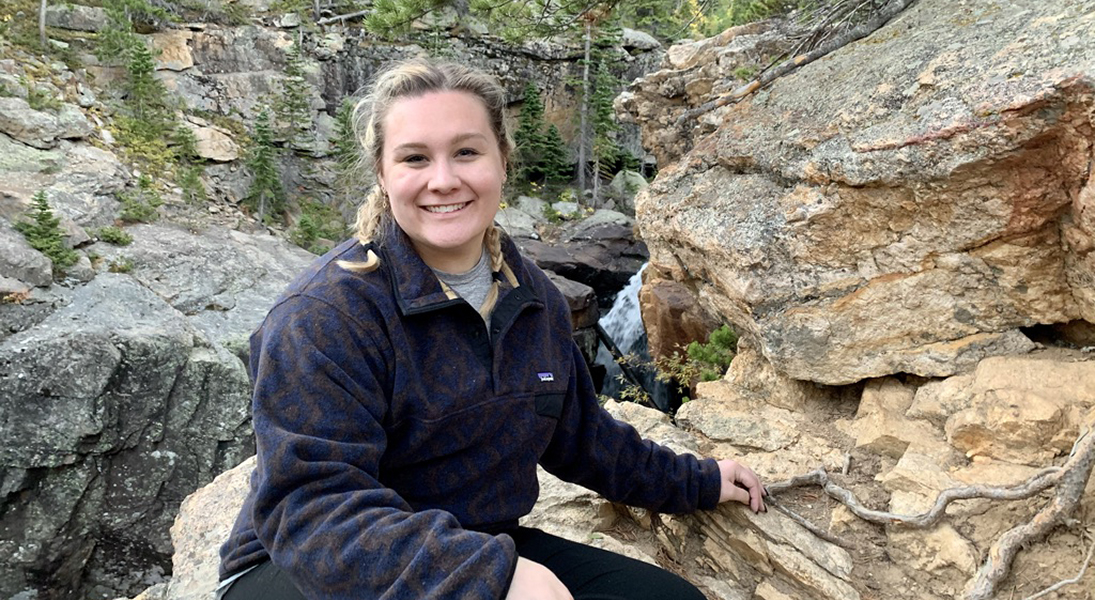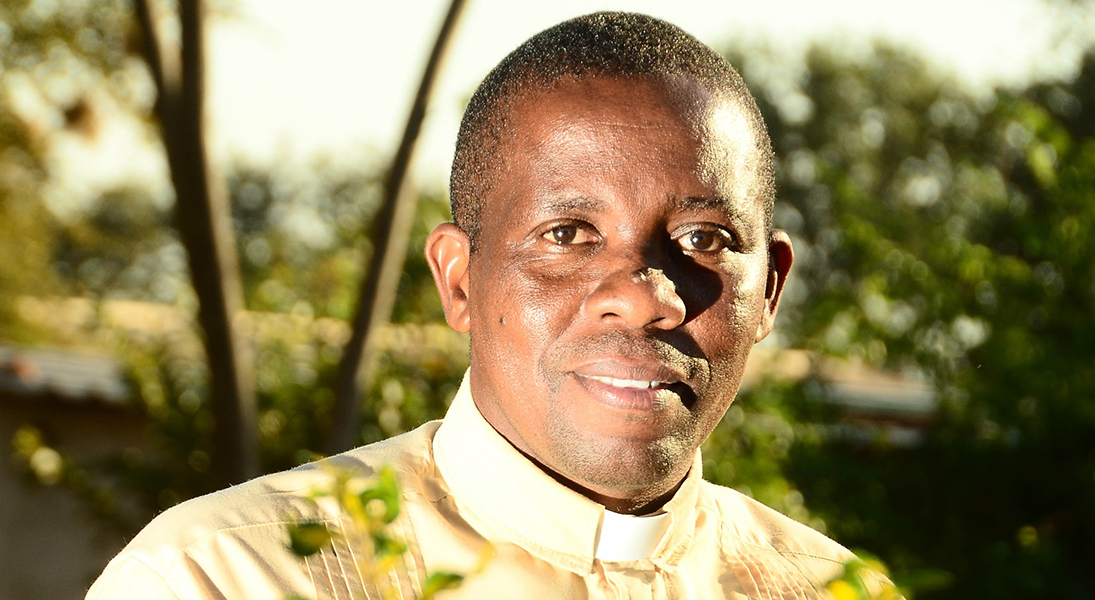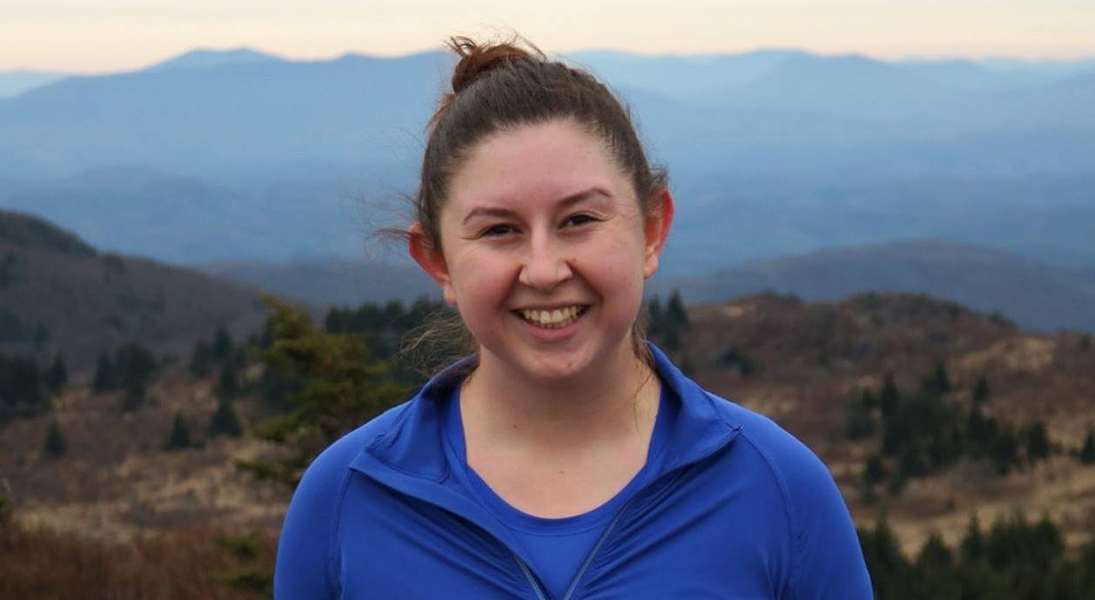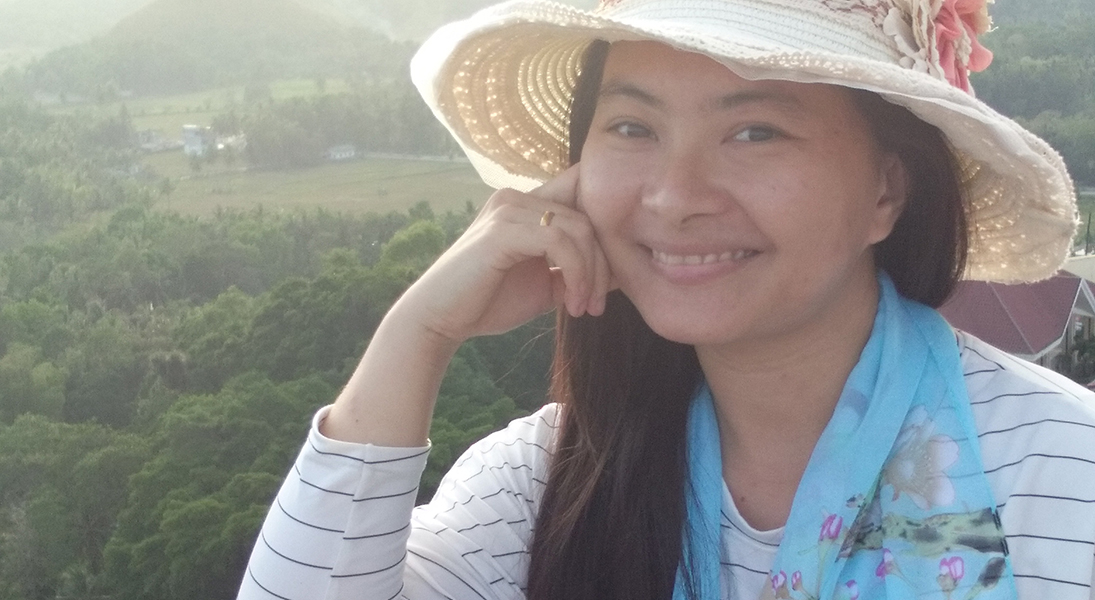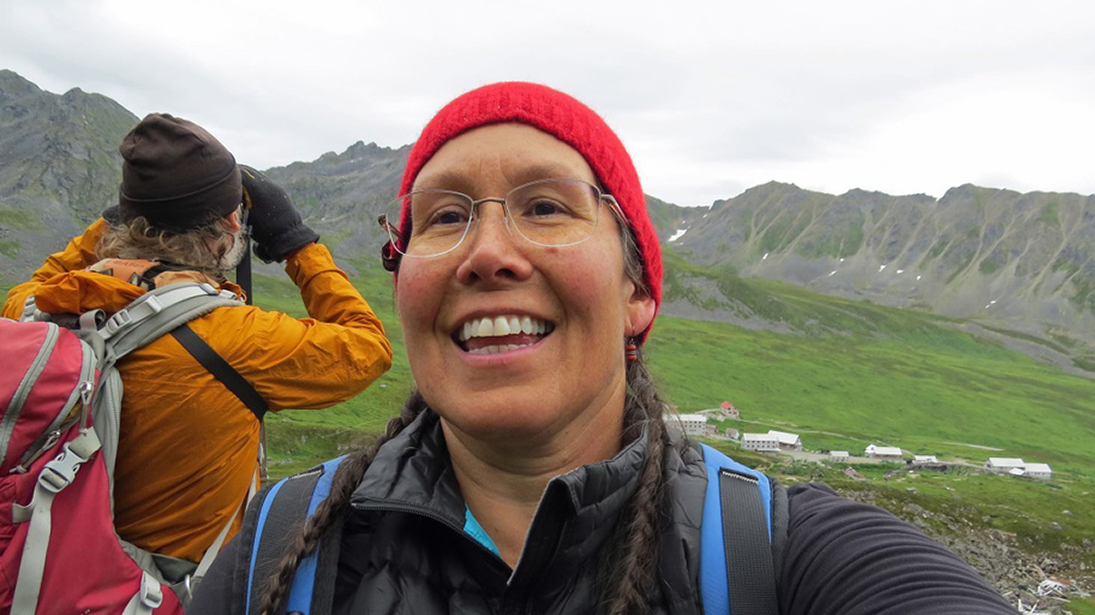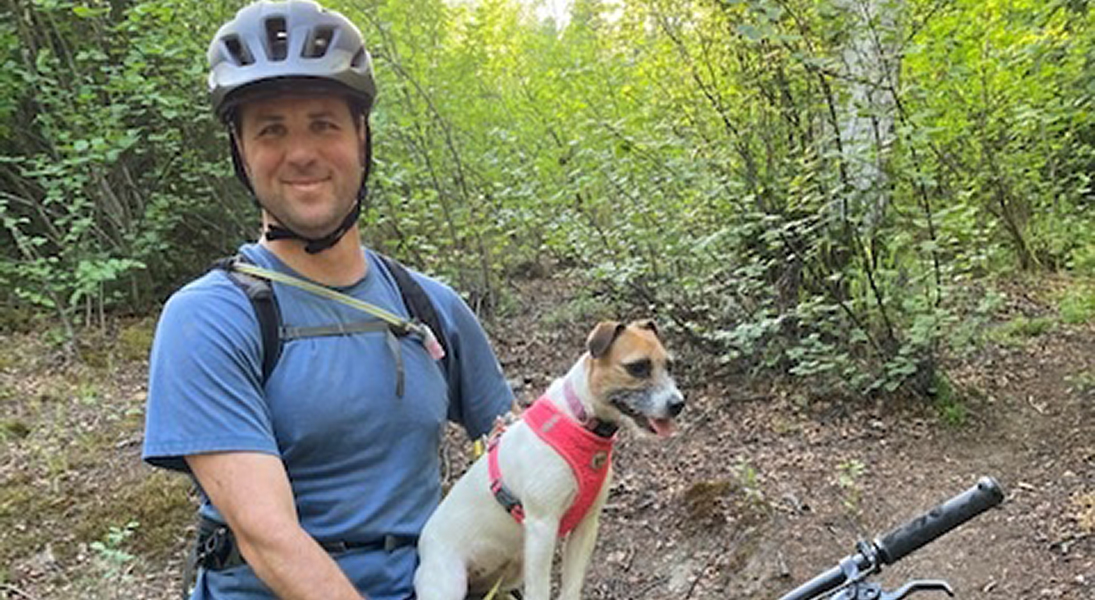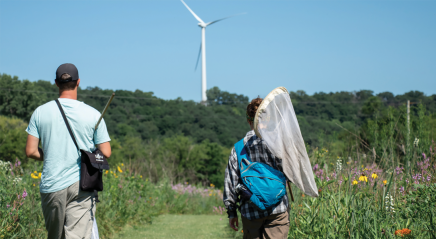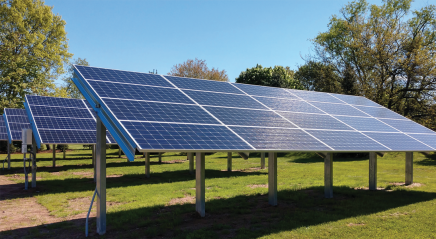Elena Cedillo, Chad Rimmer and Phoebe Morad greeted each student as they joined the Zoom conference. The students, representing 10 countries and ranging in age from 21 to 70, had gathered online in fall 2021 as the first group in Pacific Lutheran Theological Seminary’s (PLTS) certificate in climate justice and faith, based in its Center for Climate Justice and Faith, which opened in 2020. Cedillo and Rimmer, of the Lutheran World Federation (LWF), facilitated the course of study.
Thirty participants were selected for the 2021-22 online certificate group, the curriculum for which aims to empower participants to cultivate moral, spiritual and practical power for leadership in the work of climate justice. Certificate students vary in vocation and background but are all looking to integrate their faith with a desire to act locally for climate solutions.
The certificate program’s fall semester involves a knowledge-building component in which students hear from experts, explore theological and biblical foundations for climate justice, and interact with one another in online forums and weekly discussions. The spring semester encourages in-context skill-building, allowing students to apply what they’ve learned by developing a “Sacred Action” project intended to serve their community.
The Center for Climate Justice and Faith is the result of a collaboration between the seminary, LWF, Lutherans Restoring Creation (LRC) and ELCA World Hunger. “This collaboration is Spirit-led,” said Cynthia Moe-Lobeda, professor of theological and social ethics at the seminary and the center’s founding director. “Without any one of these partners, the certificate in climate justice and faith would not have been born.”
The center’s work reflects the partners’ shared vision of linking faith to effective action. For World Hunger, the partnership connects two related priorities: addressing the root causes of hunger and investing in the education of leaders working toward a just world where all are fed. This led World Hunger to provide financial support for the center in 2021 and 2022.
At the core of the certificate program are international students learning together and supporting one another. Morad, LRC executive director and coordinator for the center’s certificate program, believes this diverse learning community makes the center unique and necessary as the church responds to the global climate crisis. “These people may never be in the same room,” she said, “but after months of shared readings, spiritual exercises and hearing each other’s perspectives, this community will be holding each other in prayer and will remain accountable to one another across many time zones.”
In this article, some of the students in the inaugural group share what brought them to the center and how the experience has impacted them so far.
Sabi Elizabeth Aitiya
Founder and CEO of a nonprofit and member of the Lutheran Church of Christ in Nigeria
My burning desire to care for God’s creation led me to apply for this program. Through the course, I have been deeply connected to God, and I gained a better theological understanding of my responsibility to care for creation.
My life has transformed since I began this program. My horizons have been broadened, and I have a clearer and deeper relationship with the Lord. I am excited to work with everyone in my congregation to raise awareness of climate justice and empower people made vulnerable as a result of the climate crisis and migration.
Lisa Swanson Faleide
Writer, theologian and farm owner, North Dakota
As a writer and theologian, I feel a vocational calling to meld my background with my lifelong interest in the health and stewardship of creation. I see the church as the principal place in society where we are called by God to address climate justice and care for creation.
Participating in the cohort at PLTS has strengthened my understanding of the situations others face outside my own realm of experience. I’ve learned a lot from the other students. Now I feel called to create resources, communications, liturgies and more for people from small congregations, especially in rural areas, and I look forward to delving further into the active and community-centered work ahead.
Ashley Procanyn
Activist and graduate student in natural resources/sustainable development, Pennsylvania
My pastor from my Lutheran campus ministry recommended I apply, and I was fascinated by the course materials and the cohort style. The opportunity to learn how other siblings in Christ view their relationships with God, creation and humanity has been indescribable.
I absolutely know it is my call to advocate for climate justice and the environment, and it is more than just “important” for the church to be involved in this work. God charged us to care for creation, to name creatures and to learn and understand. Thus, the church needs to be at the forefront of caring for creation and fighting for climate justice. I cannot wait to see what our cohort accomplishes!
Kwanele Ncube
Pastor and dean of the Evangelical Lutheran Church in Zimbabwe
The desire to be an advocate for climate justice led me to this program. My passion for climate justice makes me have a different worldview when it comes to all creation. It’s imperative for the church to be involved in this work because the church has the people and the Scriptures to address climate justice and the role of humans as stewards.
Working with the other students has made me realize that, while the climate change that affects my area is not known to some, climate change has affected almost every corner of the world in different ways. In my own community, I have been planting trees on a small scale. This is the work I will continue to pursue after I finish the certificate, since my region is fast becoming a desert due to deforestation.
Larry Ryan
Retired high school teacher, member of the Delaware-Maryland Synod creation care team
In my lifetime, I have experienced both the revelation of the glory of God’s creation and the ways that many natural wonders on our planet have degraded. This has created an unjust reality for many people who depend on the land in order to live. I have learned and grown much through my relationships with those in my cohort who share the realities of how the climate crisis has impacted their lives, and I’ve been inspired by the ways they have helped heal their communities.
The certificate program at PLTS has provided me with many tools to use to discover faith responses to the climate crisis. There is much to teach about the love of God by how we honor creation so that others may live a healthy and abundant life.
Kolade Fadahunsi
Director of the Institute of Church and Society, Ibadan, Nigeria
I applied for the certificate to seek more knowledge and learning. The program is relevant to the realities of our time and the calling of the church to be the platform to set standards and care for creation. We are created in God’s image and charged as stewards of the earth. Working with the other students, I have learned from their experiences.
In my work, I plan to focus on the nexus between water scarcity, deforestation and climate injustice, and to engage in legislative advocacy to foster change.
Jillian Ross
Pastor and artist, California
I am not always excited about Zoom meetings, yet when my cohort comes to the screen, I feel like we are prisms, eliciting light like a kaleidoscope. Once we begin sharing how climate change is causing suffering in the places we live and for the people we love, a deep caring has developed between us as participants. We have each answered a call to respond to the needs and problems of specific places, and through the readings, reflections and online conversations, we are creating a fuller, richer dialogue to bring each other into finding solutions for a dilemma that is impossible to take on individually. This gives me hope.
Arthurage Abureni
Programs manager, Zimbabwe Interfaith Council for Justice and Peace Trust; Master of Science-International Affairs student at Midlands State University, Gweru, Zimbabwe
The quest to act from a position of knowledge made me apply for the certificate program at PLTS. My passion for climate justice rests on the desire to live today with tomorrow in mind; this way, we can inherit a sustainable future for those who will come after us. As a Christian, my passion is driven by the need to follow Scripture, especially Genesis 2:15, which gives the mandate to work the garden and keep it. Yet, passion and zeal for this work alone are not enough to make a positive impact.
By gaining knowledge from this program, I hope to “walk the talk” by transforming knowledge into practice through educating and inspiring others. By working with others from different geographic locations, I know that we are not alone in this pursuit of climate justice. It has been a privilege to tap from the vast knowledge and experiences of others, which broadens my perspective. This certificate is an opportunity like no other for those desiring to grow in knowledge and their spirituality.
Simon Halkano Gollo
Teacher, mentor and climate activist, Kenya
I believe God has given me a mandate to take care of God’s creation. My passion for this work and for climate justice shapes my faith, and my desire to better understand this relationship led me to this certificate program. We are facing a number of crises in the contemporary world, and the voice of the church is important. That is why I will be working on a project to engage youth and to educate them on the mandate given by God to take care of creation and how they can take a step in faith to make a change.
Already, we have begun to plant trees as a conservation measure. In October 2021, we planted 10 trees, most of which are still doing well, despite a drought. Building on this, I am hoping to pursue cross-cultural studies to prepare myself for full-time ministry, and the knowledge of climate justice will help me to work in these contexts. Interacting with the other students in the program has helped me learn from their reflections and see that we are all battling the same problem together.
Oinike Natalia Harefa
Lecturer at BNKP Sundermann Theological Seminary, Nias, Indonesia
I teach missiology at a seminary on the island of Nias. In my class, I always include the subject of ecology because I believe that protecting the earth is a sacred calling of the church. This certificate program has helped me to see that, even though women, indigenous peoples and young people are often the frontline victims of climate change, governments often do not embrace them as subjects in making important decisions about the environment.
In addition to teaching, I have found other ways to share more about ecology and the church’s calling to protect the earth. This semester, I wrote an academic article on ecological damage. I also write and share poems on climate justice on social media. After completion of the certificate, I plan to continue working with youth on these issues and to create programs in my church, such as campaigns about ecological devastation in Nias.
Julie Kroll
Recreation program director, Virginia
I was led to this program because I am excited about the intersectionality of faith and climate justice in this course. Both aspects have been integral to my life journey so far, even when they aren’t always associated with each other. My faith is shaped by Scripture such as Genesis 2 and Matthew 22:36-40. We have a responsibility to care for God’s whole creation, love God with all of our being and love our neighbors, and our faith traditions offer us a perspective on these relationships and a language of gratitude that we often choose not to follow in our day-to-day thinking.
When we care for the natural world (and include all people) and recognize our interconnectedness, we also live into our love for God and one another. Climate justice is a reminder that, although we fall short of the glory of God, we should always strive to be better.
Win Kurflink
Counselor/psychotherapist and co-founder, the Perennial Waters Project, Rockwood, Mich.
The church as a global body, just as for local bodies, is well positioned to demonstrate faithful action at every scale. Church leadership is perhaps one of the most effective kinds of human institutions with the capacity to sustain activism. Personally, I feel called to participate in the flourishing of life. That which jeopardizes this flourishing seems worth my enthusiastic attention. Coming into this program, I was unsure how I might fit, but the course is designed in such a way that I feel like I fit right in.
Working with the cohort of students from different countries seems to me the most important part of the learning. There is a profound collaborative witness that comes from our differences. I have been surprised by my own capacity of faith, even in these uncertain times and in the face of sometimes discouraging news throughout the world. My intention for applying the learning from the program in my work is to better understand how to proceed with developing a community-level, faith-based center for contemplative activism.
Dustin Lenz
Pastor, Christ Lutheran Church, Fairbanks, Alaska
Jesus tells us to love God and love our neighbors. If we are not taking care of the creation God has given to us, how is that loving God? If we are exploiting our neighbors, which includes the resources, plants, animals and people who live on that land, how can we be loving them? There is a theological backbone the church needs to claim for addressing climate justice issues and caring for creation. By claiming this and addressing the real and present issues of our day, people outside of the church will learn that faith in God is congruent with what they know is true, it will cause them to see God present and real now.
In my own work, I have come to terms with moving outside my own comfort zone to speak from the pulpit about climate justice and how we enact this justice as a faith community. I have found that this makes other people feel like they have permission to speak up, to share their anxieties and to feel empowered to act on their vision.
Deborah Nyquist
Leadership and management consultant, Kenai, Alaska
I was drawn to this program, in part, because I want to learn more, connect with others in a meaningful way and find ways to help other people support restorative climate justice. During the program, connecting with other students across the globe has helped me to grow outside of my own narrow vision. It has both simplified and complicated my views of the climate crisis, and I feel better prepared now to speak on how our experience locally is mirrored in places far removed from us in Alaska.
I’m still learning how my passion for climate justice shapes my faith, but I believe the church may help to heal the divisiveness in the world on a grassroots, local level, and I want to use my voice to help connect my church family to effective local and global efforts.
Deborah White
Journalist, Reno, Nev.
My faith shapes my worldview, including caring for God’s creation and justice related to the effects of climate change. Both my caring for the earth and for equal, loving justice all stem directly from this faith. My desire to deepen my understanding of climate justice and how it intertwines with facts about climate change and current politics in both the U.S. and the world led me to the certificate program at PLTS. The course has caused me to be more sensitive to the unequal and unjust distribution of climate change effects on various populations, while hearing from other students has given me a perspective on how privileged we are in the United States.
For my Sacred Action Project, I will be developing a two-part curriculum for all ages on Christian responsibilities to care for God’s creation, though I also have a plethora of other projects on my slate, including drafting the environmental plank in the Washoe County, Nev., Democratic platform, helping organize a consortium of adults to take action on climate change, and developing a website on climate news. Caring for the earth and for justice come directly from the Bible; any faith that rests on biblical wisdom must be committed to these teachings.
Along with this first successful group of the certificate program, the center has initiated a concentration in climate justice and faith for seminary students and a program in community organizing for climate justice as love in action. In the coming year, the center intends to launch a new Spanish-language version of the certificate in climate justice and faith for students from across the ELCA and other member churches of the LWF.
To learn more about the Center for Climate Justice and Faith, visit centerforclimatejusticeandfaith.org.





